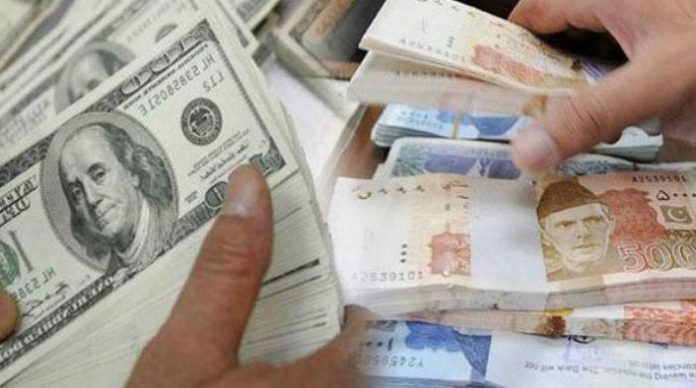
KARACHI: The latest round of rupee devaluation is set to stoke inflation and the KSE-100 index remained muted when the currency depreciated against the dollar on Monday.
According to analysts, the latest round of rupee devaluation has left an air of uncertainty over the extent of the fall which has raised concerns over the weakening macroeconomic situation, reported Express Tribune.
The market was jolted on Monday when the State Bank of Pakistan in a widely predicted move permitted the rupee to depreciate 3.65 percent against the dollar in the inter-bank market, the third such instance during the outgoing financial year.
EFG Hermes Pakistan Chief Executive Officer (CEO) Muzammil Aslam said exporters weren’t sure whether the latest round of devaluation would continue, or would it halt here.
Mr Aslam said the textile sector which constitutes the largest export segment of Pakistan were talking about the rupee weakening in range of Rs140 to the US dollar.
He added the unpredictable situation could force exporters to hold onto their export proceeds as they await further rupee devaluation.
EFG Hermes Pakistan CEO said if further rupee devaluation took place, this would further erode foreign currency reserves and timing of it was questionable.
It was widely expected by exporters the next elected government would have devalued the local currency, which would take power after the upcoming general elections slated to be held on July 25th.
Foreign exchange reserves are eroding fast equating to around two months of import cover, currently.
The country’s business community believes Pakistan would feel the pressure sooner rather than later due to an almost 13 percent dip in the value of the rupee in the last six months.
Mr Aslam said devaluation would stoke up inflation translating into imports becoming more expensive and compelling the central bank to hike the key interest rate sooner than expected and at a speedier pace.
He added this would reduce private sector credit and impact Pakistan’s economic growth.
The import bill would remain inflated because of the country’s huge dependence on imports of petroleum products, which have been becoming expensive due to frequent rises in international oil prices.





